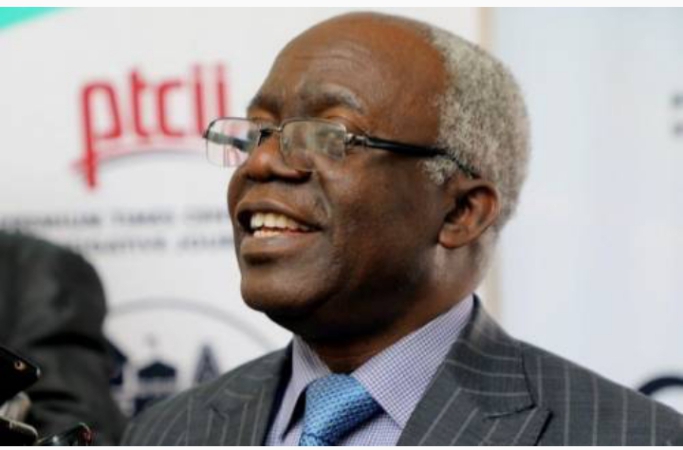The former president of the West African Bar Association and human rights campaigner, Mr. Femi Falana (SAN) has called for the cancellation of payment of electricity bills across the country as a result of the ravaging coronavirus pandemic.
The senior advocate of Nigeria made the call during the Lagos State University (LASU) 9th online public lecture, titled, “law and society in the context of the COVID-19 pandemic.”
Falana, who spoke on “balancing the economic interest of the citizens and government’s responsibility in crisis period, also called for the construction of free houses for the indigent, massive investment in housing and slashing of salaries of all public officer holders by at least half.He lamented that there are 72, 000 registered doctors in Nigeria, but more than half of them have left the country, adding that it was in a bid to deny citizens their social economic rights that the government made chapter two of the 1999 constitution non-justiciable.
He said: “The economic interest of citizens is being sacrificed at the exigency of the moment, particularly the poor. They have been under serious pressure as a result of lockdown and restriction of movement introduced by government to contain the coronavirus pandemic. I call on labour unions and other civil society organisations to mobilise the people to contest for the economic and social rights that have been won over the years. I want to start by challenging the established position, which is that chapter two of the constitution is not justiciable.”He added that through pressure from citizens, the government decided to enact other laws for the actualization of certain socio-economic rights in the country.
The co-ordinator, Lagos State Domestic and Sexual Violence Response Team (DSVRT), Mrs Titilola Vivour-Adeniyi, who spoke on “rape crisis in the pandemic: socio-legal discourse” explained that consent on sex can be withdrawn at any time before or during the act.
According to her, section 261 of the criminal law of the state provided that convicts of sexual assault would be liable to life imprisonment. She urged victims of sexual violence to speak up and ensure that they retain all the evidence, such as abstaining from birthing, keeping their clothes and others that might help to prove cases against suspects.
In his intervention, Professor of constitutional and administrative Law, LASU, Mike Ikhariale, said the pandemic has changed the way people operates, citing the use of Zoom meeting as example. He explained that the pandemic has affected the human rights of citizens in many ways such that legal rights have been diminished.
Prof. Ikhariale discussed “the scope of human rights guaranteed in the pandemic.” He noted that freedom of religion has also been curtailed. “For every law and right, there is always exceptions. We have rights, but for now, they have been denied us,” he declared.
The dean of faculty of law, LASU, Prof. Funmuniyi Adeleke, who moderated the event, stated that the University is averse to sexual violence and had produced handbook against the vice long before the enactment of law against sexual violence, while the Vice Chancellor, Prof. Olanrewaju Fagbohun (SAN) expressed delight over the turnout at the online conference. He thanked all participants expressed the optimism that future events would be well attended.
The Guardian
